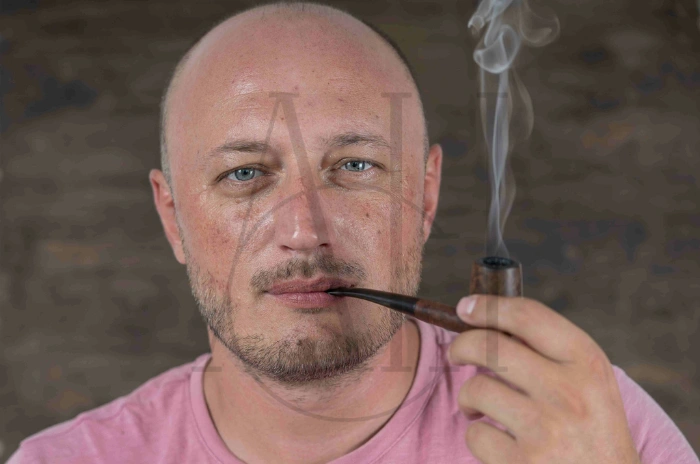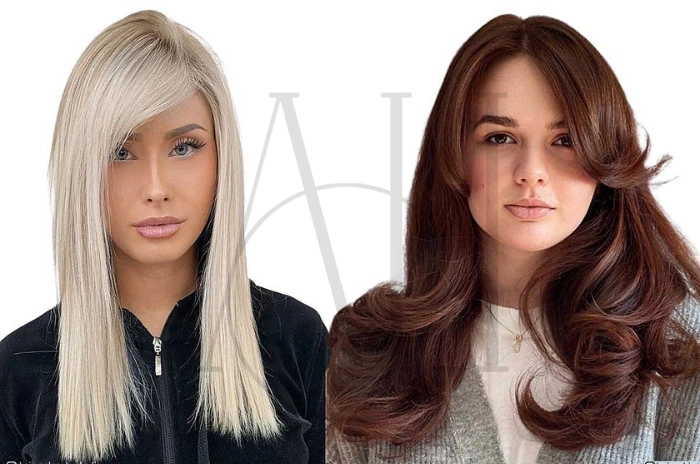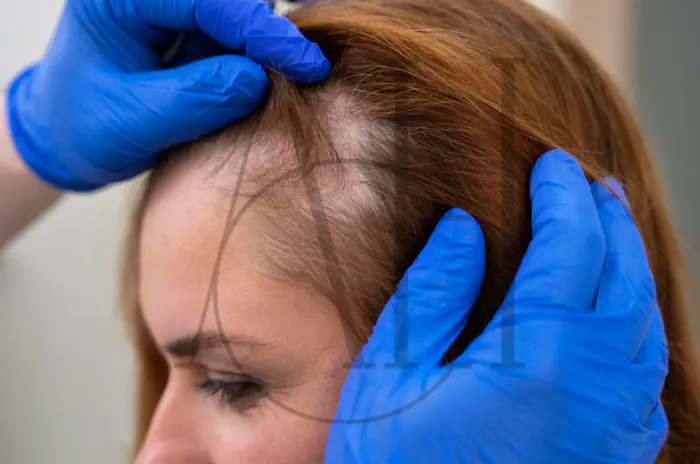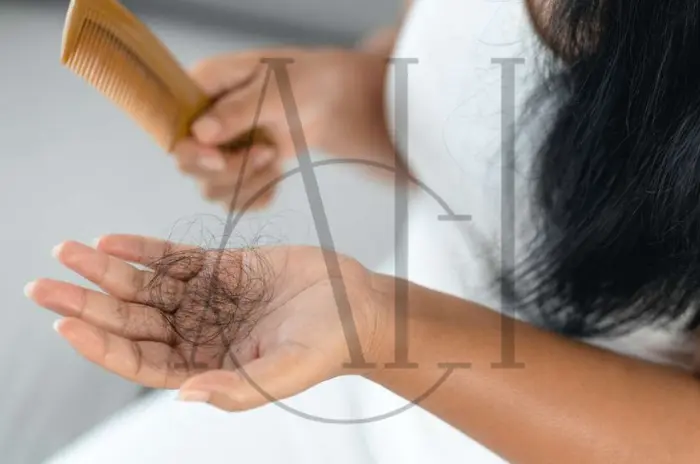Your hair is one of your most visible features, and its health directly reflects your lifestyle choices. Smoking and alcohol consumption can significantly impact hair growth, texture, and overall appearance. Understanding the connection between these habits and hair health is crucial for anyone looking to maintain strong, vibrant hair.
Both smoking and excessive alcohol consumption create a cascade of negative effects that can lead to hair thinning, premature graying, and slower growth rates. The good news is that many of these effects can be reversed with the right approach and commitment to change.
Table of Contents
ToggleHow Smoking and Alcohol Damage Your Hair
Smoking and hair loss occurs through multiple mechanisms that directly attack your hair’s foundation. Cigarettes contain over 4,000 chemicals that restrict blood flow to hair follicles. This reduced circulation means fewer nutrients and oxygen reach the roots where hair growth begins. The toxins in cigarette smoke also damage the DNA in hair follicles, leading to weakened hair structure.
Nicotine acts as a vasoconstrictor, shrinking blood vessels and limiting nutrient delivery to your scalp. This creates an environment where hair follicles cannot function optimally. Additionally, smoking increases DHT production, a hormone linked to male pattern baldness and hair thinning.
Alcohol and hair loss presents its own set of challenges for healthy hair growth. Excessive drinking depletes your body of vital nutrients, including zinc, iron, and B-vitamins that are essential for hair production. Alcohol also dehydrates your body, leaving hair follicles without adequate moisture to produce strong, healthy strands.
The liver becomes overwhelmed when dealing with excessive consumption, impacting its ability to process nutrients effectively. This creates deficiencies that manifest as thinning hair and slower growth rates. Alcohol hair loss telogen effluvium is a condition where excessive drinking pushes hair follicles into a resting phase, causing widespread hair shedding.
Why Quitting Smoking Helps Hair Growth
Quitting smoking hair growth improvements begin almost immediately after your last cigarette. Within 20 minutes, your heart rate and blood pressure start to normalize. Within 12 hours, carbon monoxide levels drop, allowing more oxygen to reach your hair follicles. This improved circulation is the first step toward healthier hair growth.
The nicotine and hair loss connection becomes less problematic as nicotine leaves your system. Blood vessels begin to dilate, improving nutrient delivery to your scalp. Your body also starts producing less DHT, reducing the hormonal factors that contribute to hair thinning.
As weeks pass without smoking, your body’s vitamin C levels restore. Vitamin C is crucial for collagen production, which strengthens hair shafts and improves overall hair quality. The antioxidant properties help repair damage caused by free radicals from cigarette smoke.

How Long After Quitting Will Hair Improve?
The timeline for hair improvement varies among individuals, but most people notice initial changes within 3-6 months after quitting smoking or reducing alcohol consumption. Hair growth follows a natural cycle, and it takes time for damaged follicles to recover and produce healthier strands.
During the first month, you may not see visible changes in your hair, but important healing processes are occurring at the cellular level. Blood circulation improves, and your body begins to repair damage from toxins. Some people experience temporary increased shedding during this period as damaged hair makes way for healthier growth.
Between months 2-4, many people notice that their hair feels stronger and appears shinier. New growth may be more noticeable, and existing hair may break less frequently. The healthy hair tips for drinkers who have reduced their alcohol intake often include observations about improved hair texture during this period.
By month 6, significant improvements become apparent. Hair growth rate typically increases, and the overall quality of new hair is noticeably better. People who have addressed both smoking and drinking habits often report that their hair color appears more vibrant and natural during this timeframe.
| Timeline | Smoking Recovery | Alcohol Recovery |
|---|---|---|
| Week 1-2 | Blood circulation improves, oxygen levels increase | Liver begins detoxification, hydration improves |
| Month 1 | Reduced scalp inflammation, less brittleness | Nutrient deficiencies hair loss alcohol start healing |
| Month 3 | New hair growth becomes visible, texture improves | Hair feels stronger, reduced breakage |
| Month 6+ | Quitting smoking hair growth fully apparent, natural color returns | Follicles recover, growth rate normalizes |
Benefits You May Notice After Quitting Smoking
One of the first benefits many people observe is improved scalp health. The scalp becomes less dry and irritated as blood flow increases. This creates a better environment for hair follicles to function optimally. Many people also notice reduced dandruff and scalp inflammation.
Smoking and premature graying reversal is another potential benefit. While genetics play a significant role in graying, smoking accelerates the process by damaging melanocytes, the cells that produce hair color. Some people report that their natural color appears more vibrant after quitting.
Hair texture improvements are common within the first few months. Strands become less brittle and more elastic, reducing breakage during brushing and styling. The improved circulation also means that hair grows more uniformly, creating a fuller appearance overall.
Best Foods to Repair Hair Damage from Smoking/Alcohol
Nutrient deficiencies hair loss alcohol and smoking create can be addressed through targeted nutrition. Protein-rich foods are essential since hair is primarily made of keratin. Include lean meats, fish, eggs, and legumes in your daily diet to provide the building blocks for strong hair growth.
Iron-rich foods help combat the anemia that often accompanies heavy drinking and smoking. Spinach, lean red meat, and lentils help restore iron levels crucial for carrying oxygen to hair follicles. Vitamin C from citrus fruits enhances iron absorption and supports collagen production.
B-vitamins, particularly biotin, B12, and folate, are essential for healthy hair growth. These nutrients are often depleted by alcohol consumption. Include whole grains, leafy greens, and lean proteins to restore optimal B-vitamin levels. Omega-3 fatty acids from fish and nuts help reduce inflammation and add shine to existing hair.
Hair Care Tips for Ex-Smokers and Drinkers
Developing a proper hair care routine after quitting alcohol or smoking starts with gentle cleansing. Use sulfate-free shampoos that won’t strip your hair of natural oils as it recovers. Your scalp may be more sensitive during the healing process, so choose products designed for sensitive or damaged hair.
Deep conditioning treatments become particularly important during the recovery phase. How to reverse hair damage from smoking includes regular protein treatments that strengthen weakened hair shafts. Use deep conditioning masks once or twice weekly to restore moisture and elasticity.
Scalp massage can significantly improve circulation and promote healthy growth. Spend 5-10 minutes daily massaging your scalp with gentle circular motions. This practice helps stimulate blood flow and can accelerate the healing process.
Alcohol’s effect on hair follicles means that hydration becomes crucial for recovery. Drink plenty of water throughout the day to support overall health and hair growth. Proper hydration helps transport nutrients to hair follicles and maintains scalp health.
FAQ :Healthy Hair Growth by Avoiding Smoking and Alcohol
How does smoking actually damage my hair?
Smoking restricts blood flow to hair follicles through vasoconstriction, while the 4,000+ chemicals in cigarettes create oxidative stress that damages hair DNA and weakens follicle structure.
Does quitting smoking really improve my hair health?
Yes, quitting smoking hair growth improvements typically begin within weeks as circulation improves and nutrient absorption increases, with significant changes visible within 3-6 months.
Can drinking too much alcohol cause hair loss?
Excessive alcohol consumption leads to telogen effluvium from smoking/alcohol by depleting essential nutrients, dehydrating follicles, and pushing hair into a resting phase that causes widespread shedding.
What nutrients are vital for healthy hair growth?
The best nutrients for hair growth include protein for keratin production, iron for oxygen transport, B-vitamins for cellular function, vitamin C for collagen synthesis, and omega-3 fatty acids for scalp health and inflammation reduction.




